
The right care routine for
sensitive skin
Sensitive skin reacts to a wide variety of influences with irritation – itching, tightness, redness, or flaking are common side effects of hypersensitivity that can trouble those affected. The exact nature of sensitive skin's reactions can vary greatly.
Therefore, the best approach is usually to avoid potentially irritating ingredients altogether. Prof. Dr. Steinkraus's skincare concept excludes critical ingredients that serve no real purpose for the skin and are potentially irritating. Therefore, Prof. Dr. Steinkraus's product range also includes the right care for sensitive skin.
The causes of sensitive skin
Sometimes sensitive skin is simply a matter of predisposition. Genetic factors, for example, can cause the skin to react to various substances with redness. This is usually referred to as chronically sensitive skin. However, the sensitivity doesn't have to be congenital – sensitive skin can also occur temporarily or be due to certain other causes. Sensitive skin is characterized by a disruption of its natural protective barrier. This can have various causes. Examples of sensitive skin include the following:
Sensitive skin or allergic skin?
Sensitive skin is often equated with allergic skin, as similar symptoms can occur: The skin burns, tightens, or even develops pimples, hives, and flakes. Allergic skin necessarily involves a substance that immunologically sensitizes the skin. If the skin is generally sensitive, this usually corresponds to high sensitivity or irritability without an allergy being present. An allergic skin reaction always improves by removing the allergenic substance. Naturally sensitive skin, on the other hand, often cannot be soothed by anything. It reacts to the smallest stimuli, without there being an allergy. In summary, sensitive skin usually has the following characteristics:
Care for sensitive skin: A sample routine
Sensitive skin is especially dependent on mild formulations that don't irritate it. Accordingly, fragrances and other harmful additives that require labeling should be avoided in skincare products. It's also worth looking for ingredients that rebuild the skin's acid mantle and thus strengthen the skin barrier. Prof. Dr. Steinkraus offers the following options for sensitive skin:
(04) Cleansing Gel
Gentle cleansing without over-drying the skin is an important foundation of a skincare routine. Sensitive skin, in particular, doesn't tolerate aggressive cleansing gels well, so choosing a mild yet effective product is recommended.
(05) Hyaluronic Serum
Hyaluronic acid helps rebuild the skin barrier and moisturize the skin deep down. At the same time, it supports skin regeneration.
(01) Face Care Light/(02) Face Care Medium/(03) Face Care Rich
Since the acid mantle is permeable on sensitive skin, irritations are all too common. With a face cream for sensitive skin tailored to your individual needs, the skin barrier can be effectively supported. Thanks to our three different options, you can choose the richness of the care as needed.
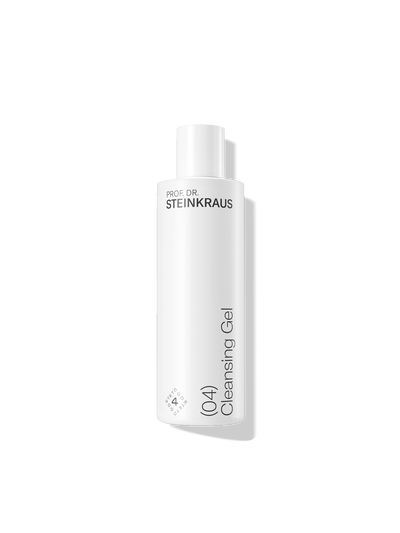
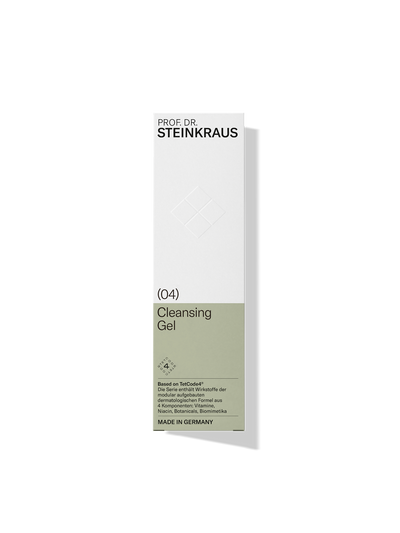
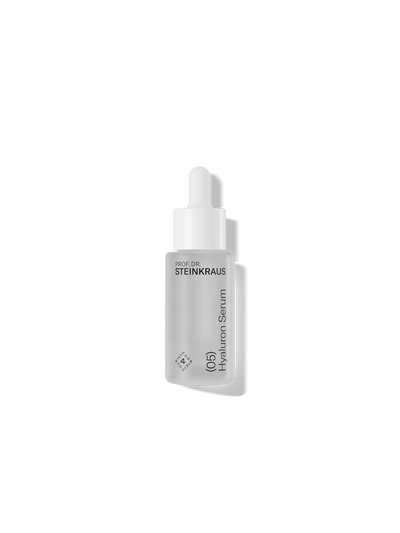
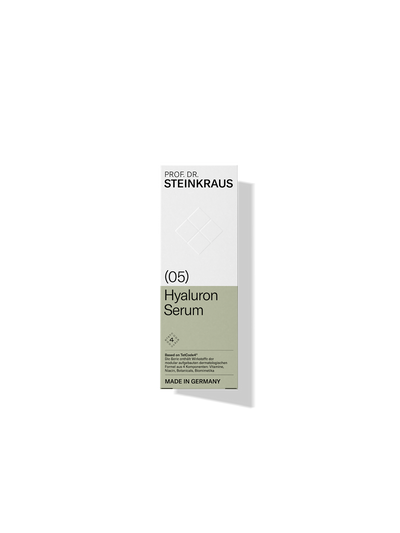
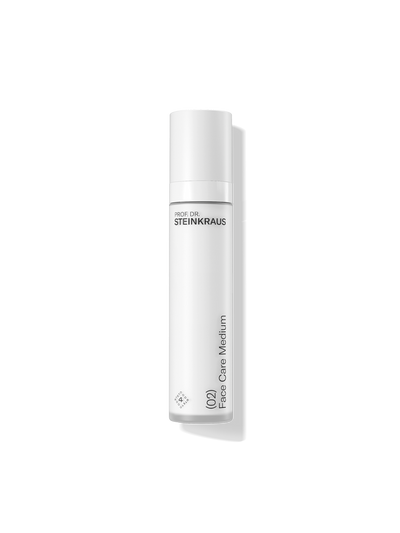
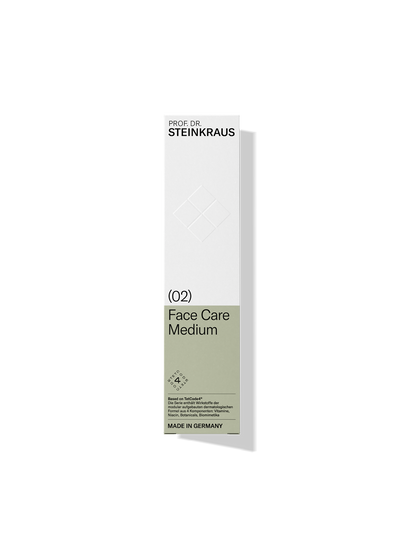
Sensitive skin reacts strongly to various external influence –whether heat, cold, cosmetic ingredients, or friction. This often results in redness, itching, flaking, or blemishes. The pore profile of sensitive skin is normal to fine.
In many cases, sensitive skin is congenital. However, sensitive skin can also be caused by external influences and/or occur temporarily. Causes for this include skincare products, an unhealthy diet, medications and treatments, or temperature changes.
Sensitive skin should be cared for with a good basic routine that avoids irritating ingredients. Since it can be both oily and dry, the richness of the moisturizer should be tailored to its needs. Since the acid mantle of sensitive skin is permeable, products that strengthen the skin barrier are a good choice.